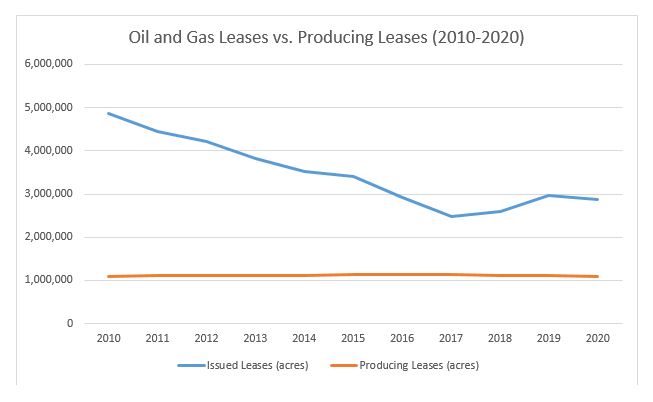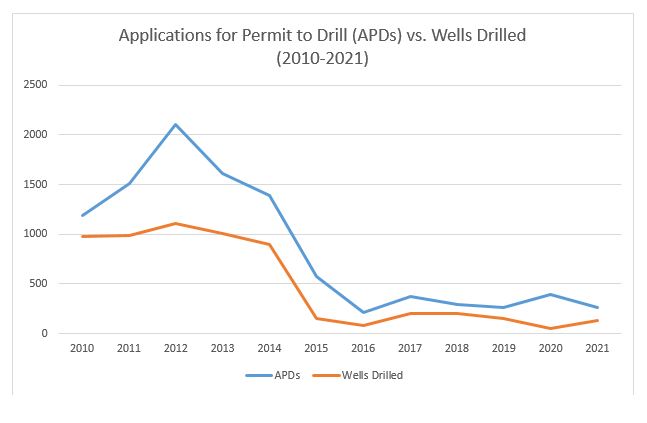Utah Governor Cox and his pro-fossil-fuel allies are cynically trying to take advantage of Russia’s invasion of Ukraine to encourage President Biden to quickly lease publicly-owned lands across the United States, including in Utah. But issuing new leases will do little to alleviate rising fuel prices.
First, the issuing of new leases doesn’t directly correlate with the amount of drilling on public lands. While the acreage of public lands under lease in Utah has fluctuated over the past decade, the acreage in production has not. As of 2020, approximately sixty-three percent of existing federal leases in Utah were undeveloped, totaling nearly 1.8 million acres.
Put another way, the oil and gas industry is currently sitting on nearly 1.8 million acres of public land leases and not developing them. There is no reason to believe selling more leases now would change that.
Second, oil and gas companies have nearly 10,000 unused (already approved) drilling permits in their pockets. In Utah, oil and gas operators on average drill less than half of their approved drilling permits.
As President Biden correctly explained when he banned the import of Russian oil and natural gas:
“[Industry has] 9,000 permits to drill now . . . They could be drilling right now, yesterday, last week, last year. They have 9,000 to drill onshore that are already approved. So let me be clear . . . They are not using them for production now. That’s their decision. These are the facts.” (See also this White House fact sheet.)
Third, most oil and gas drilling in Utah and across the United States takes place on state and private land, not public land. This means more federal public lands leasing will do little, if anything, to promote new drilling (even assuming companies would develop new leases).
The Utah Governor’s Office of Energy Development recently explained that between 2015-2019 “only an average of 17% of oil wells were drilled on federal land [in Utah]” and there is “no anticipated increase in drilling on federal land.” This study concluded that even if all federal leasing were paused—for years—“Utah has more than enough potential well locations that could be drilled without major disruption to overall activities.”



